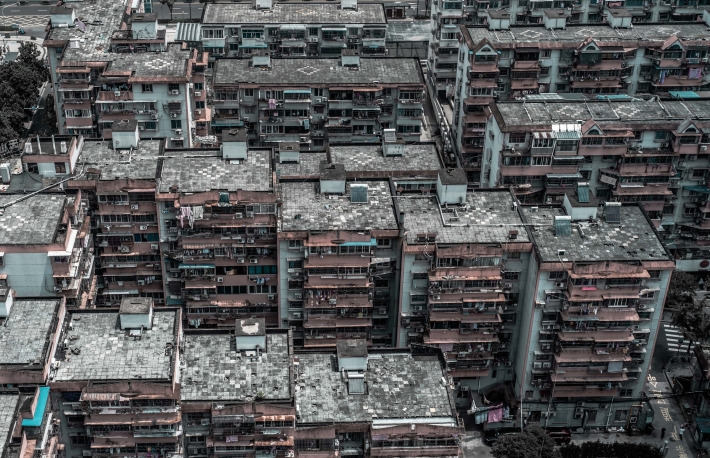Ethiopia is suffering a humanitarian disaster. After months of armed conflict, roads and bridges across the Tigray province are in ruins. Electricity and telephone lines have been cut. Only 15% of Ethiopians have access to the internet at the best of times.
With a civil war in full swing and essential infrastructure in tatters in remote areas, it might seem to be a strange time to kick off the country’s digital revolution. But the developers behind the Cardano cryptocurrency, IOHK, have announced that the U.S. tech firm will help Ethiopia rise from the wreckage. The Colorado-based company has been here for over four years planning blockchain-based citizen ID and educational record systems, as well as various supply chain management tools.
Pete Howson is a senior lecturer in International Development at the University of Northumbria, where he has researched tradeoffs in “crypto-giving” efforts.
The initial plan is for a Cardano application to be used to digitally track students’ grades and academic performances across the country. The developers then hope to expand the system incorporating an Ethiopia-wide cryptocurrency payment system, before connecting the entire African continent together with Cardano infrastructure. The platform could possibly enable access to crypto loans or “DeFi” (decentralized finance).
With COVID-19, war, famine and much of Ethiopia’s population already living “well below any reasonable conception of a life with dignity,” a United Nations special rapporteur on extreme poverty said, the project might seem like a pie in the sky idea. The company’s optimistic investors think otherwise. The deal’s announcement pushed Cardano’s ADA token to all-time price highs in May.
Blockchain projects can do very little to repair the roads and build strong political institutions in places like Ethiopia. Innovators are not drawn to fragile states because they want to fix these things. Poverty and corruption are the ideal conditions for entrepreneurs exploring opportunities to extract resources from vulnerable communities.
Cardano’s also chasing opportunities in El Salvador. Last month, the country’s president, Nayib Bukele, and a 27-year-old crypto investor, Jack Mallers from Chicago, proclaimed bitcoin the Central American country’s new official currency. Starting in September, all Salvadoran vendors with an internet connection will be breaking the country’s “Bitcoin Law” if they aren’t offering crypto-payment options.
Mallers presented his big bitcoin experiment just weeks after the U.S. threatened to pull El Salvador’s aid package following “deep concerns” around civil liberties, extrajudicial killings and human rights abuses. Despite claims that Bitcoin will help El Salvador’s poorest by “banking the unbanked,” research from Northumbria University in the U.K. looking at “Blockchain for Good” projects across the Global South, suggest it’s the economic benefits, including land, user data and other resources, that are the main drawing cards for these experiments. Critics have a name for this sort of extractive experimenting: “crypto-colonialism.”
It works like this: In the spirit of right-wing economists like Milton Friedman, blockchain innovators seek out populations suffering debt crises, war, climate disasters, etc. to impose and incubate new crypto-economic ideas. For the host government, struggling to deliver social services and infrastructure projects while suffering from chronic under-investment, its lack of tax revenue and regulations is the real headache. Cryptocurrencies and blockchain services often make those headaches worse, not better.
Puerto Rico serves as an example. After hurricanes Irma and María devastated the island, cryptocurrency investors set sail to build a new crypto-libertarian Jerusalem, otherwise known as “Puertopia.” The island soon became a highly contested sandbox for cryptocurrencies. For Jillian Crandall, a researcher at Rensselaer Polytechnic Institute, these crypto-colonialist projects might be called “disaster capitalism.”
Yet state-adverse tech companies typically tout the advantages of evading taxes via cryptocurrencies as a means of encouraging foreign investment and an entrepreneurial spirit among the locals.
Proponents of the Ethiopia-Cardano deal suggest the partnership will work wonders for corruption and transparency. Our research suggests a more dystopic outlook.
With the use of smart contracts, centralized surveillance capabilities and automated conditions can be encoded into payment platforms. Individual citizens, and even whole populations, can lose their economic sovereignty, while tech companies and central governments track and manage how citizens’ funds can be spent.
John O’Connor, Cardano’s Africa director, said the company’s crypto experiments make a much bigger splash in the poorest parts of Africa, relative to only marginal improvements for countries like the U.K. But digital ID schemes have always proven to be an intolerably hot potato in the U.K., consistently rejected by the public because of snooping concerns.
Not so, in the Global South. Global tech companies, with the help of autocratic politicians in financial pickles, are imposing systems of crypto-surveillance without public debate on entire populations. This includes refugees and other vulnerable groups. In Tigray, where local interests sit squarely at odds with the Ethiopian government, unruly populations can be easily disciplined. Just with code, not cannons.
Blockchains can’t rebuild roads, or end sectarian violence, famine or natural disasters. When countries like Ethiopia need to bounce back from war, they ultimately need support rebuilding infrastructure and strong democratic institutions, including effective legal and tax systems. Fanciful libertarian experiments with cryptocurrencies, benefiting only crypto-rich investors elsewhere, should go find another sandbox.
